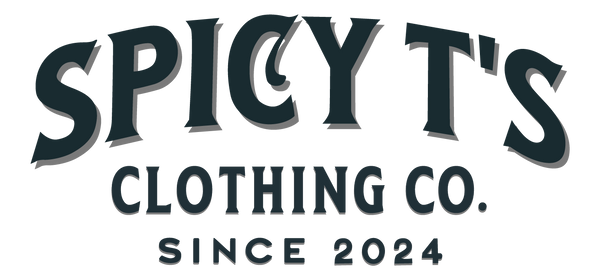
The Logo Design Process from Start to Finish: A Step-by-Step Guide for Brands and Creators
Share
A logo is more than just a pretty icon—it’s the face of your brand, the first impression, and the emotional handshake between your business and your audience. But how exactly do you create a great logo from scratch?
Whether you're designing it yourself, working with a designer, or offering this as a service, this guide walks you through the entire logo design process—from start to finish.
🚀 Step 1: Understand the Brand
Before you even sketch a line, start by getting inside the brand’s head. Ask questions like:
-
What is the brand’s mission and vision?
-
Who is the target audience?
-
What emotions should the logo evoke?
-
Who are the competitors, and what do their logos look like?
📌 Pro Tip: Build a quick brand profile or mood board with key colors, fonts, and vibes.
✏️ Step 2: Conduct Market & Competitor Research
You don’t want to create a logo that looks like a clone of another business.
Look into:
-
Industry trends
-
Iconic logos in that space
-
What’s overused (avoid clichés)
🔍 Example: For a tech startup, you'll want something sleek and minimalist. For a pet brand, a friendly or playful look might fit better.
🎨 Step 3: Brainstorm Logo Ideas
This is where creativity meets strategy.
✔️ List design directions (e.g., modern, vintage, playful, minimal)
✔️ Think about shapes—shield, circle, mascot, etc.
✔️ Identify core elements like icons, initials, or abstract symbols
📌 Helpful Exercise: Word mapping — start with the brand name and branch out related words and imagery.
✍️ Step 4: Sketch Concepts on Paper
Yes, old-school sketching still works magic.
-
Try different compositions, shapes, and layouts.
-
Don’t aim for perfection—just capture ideas quickly.
-
Explore combinations: typography + icon, mascot + shield, letter-based monograms
✏️ Pro Tip: Aim for 5–10 different directions before narrowing down.
💻 Step 5: Design Digitally (Vector Format)
Time to jump into your design software (Adobe Illustrator, Affinity Designer, or Canva Pro for basic mockups).
Essentials:
-
Create in vector format (SVG, AI, or EPS)
-
Start with black and white (focus on shape)
-
Use grid systems to align elements neatly
🎯 Follow best practices like the Golden Ratio or Rule of Thirds for balance.
🌈 Step 6: Add Color & Typography
Once your base design is solid, explore color schemes and font pairings.
Color:
-
Choose a primary brand color and a secondary accent
-
Use color psychology (e.g., red = passion, blue = trust, green = growth)
Fonts:
-
Stick to 1–2 fonts maximum
-
Use custom or clean, readable typefaces (Sans-serif for modern, Serif for classic)
🧪 Step 7: Test the Logo
✅ Ask:
-
Does it look good in black and white?
-
Is it legible at small sizes (favicon, app icon)?
-
Can it scale up for posters or signage?
-
Does it work on both dark and light backgrounds?
📲 Test it on mockups: business cards, t-shirts, banners, social media profiles.
📝 Step 8: Collect Feedback & Refine
Get input from:
-
Stakeholders
-
Design peers
-
Target audience (if possible)
🎯 Make small refinements, not radical changes, unless the feedback is critical.
📦 Step 9: Deliver Final Files
Once the logo is approved, export the files in multiple formats:
Common Deliverables:
-
AI / SVG / EPS (vector formats)
-
PNG (transparent background)
-
JPG (for web use)
-
PDF (print ready)
-
Color variations: full color, black, white, and grayscale
📁 You may also want to include a logo usage guide.
🌟 Step 10: Launch the Logo!
Celebrate! 🎉 Whether you’re rebranding or launching a new brand, roll out the logo consistently across:
-
Website and social media
-
Business cards and stationery
-
Product packaging
-
Ads and email signatures
📣 Pro Tip: Announce the launch with a post sharing the story behind the logo to build emotional connection.
💬 Final Words: Great Logos Are Designed with Purpose
Creating a logo isn’t just about picking a cool font or adding a clipart basketball. It’s about building an identity that speaks clearly to your audience.
Whether you're designing for yourself, a client, or selling vector logos or t-shirt designs, following a structured, creative process is what sets great work apart.
